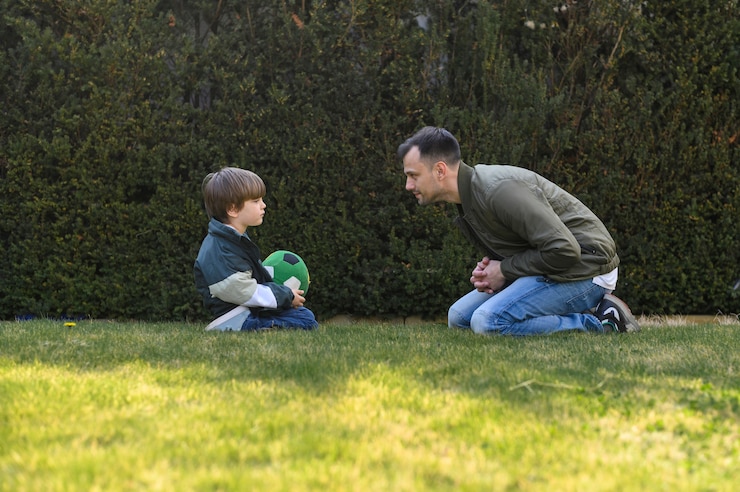Introduction
Fatherhood is a profound journey that extends beyond the confines of the home. As fathers, we have a responsibility to instill in our children a sense of environmental consciousness and sustainability. By teaching them the importance of caring for the planet, we can equip them with the knowledge and values to become responsible stewards of the environment. In this article, we will explore the role of fathers in promoting environmental responsibility and discuss strategies for teaching sustainability to our children.
- Modeling Sustainable Behavior
As fathers, we have the power to lead by example. By practicing sustainable habits ourselves, such as recycling, conserving energy, and reducing waste, we demonstrate to our children the importance of environmental responsibility. Our actions speak louder than words, and when our children witness us making sustainable choices, they are more likely to adopt those behaviors as well.
- Connecting with Nature
Fatherhood provides opportunities to connect with nature and create lasting memories with our children. By spending time outdoors, engaging in activities like hiking, gardening, or camping, we cultivate a sense of appreciation for the natural world. Through these experiences, we can teach our children about the interconnectedness of ecosystems, the beauty of biodiversity, and the need to protect and preserve our environment.
- Educating about Environmental Issues
Fathers play a crucial role in educating their children about environmental issues. We can have age-appropriate conversations about topics such as climate change, pollution, deforestation, and endangered species. By providing factual information and encouraging critical thinking, we enable our children to understand the challenges our planet faces and inspire them to find creative solutions.
- Encouraging Sustainable Choices
Fathers can encourage their children to make sustainable choices in their daily lives. By involving them in decision-making processes, such as selecting eco-friendly products, reducing single-use items, and opting for renewable energy sources, we empower them to make a positive impact. Teaching them about the three R’s—Reduce, Reuse, Recycle—helps instill a mindset of mindful consumption and waste reduction.
- Gardening and Sustainable Food Practices
Engaging in gardening activities with our children is an excellent way to teach them about sustainable food practices. By growing our own fruits, vegetables, or herbs, we demonstrate the benefits of organic farming, reduce food miles, and promote healthy eating habits. Through these experiences, children learn about the importance of soil health, water conservation, and the impact of food choices on the environment.
- Exploring Renewable Energy
Introducing children to the concept of renewable energy sources is another way fathers can teach sustainability. By explaining the benefits of solar power, wind energy, or other renewable technologies, we can spark their interest in alternative energy solutions. Additionally, involving children in simple energy-saving practices at home, such as turning off lights when not in use or adjusting thermostats, helps them understand the importance of energy conservation.
- Volunteering and Community Engagement
Fatherhood provides an opportunity to engage in community service and environmental volunteering with our children. Participating in local clean-up initiatives, tree planting activities, or conservation projects not only helps preserve the environment but also instills a sense of civic responsibility and community engagement in our children. These experiences promote teamwork, empathy, and a deeper connection to the environment.
Conclusion
As fathers, we have a vital role to play in teaching our children about environmental responsibility and sustainability. By modeling sustainable behavior, connecting with nature, educating about environmental issues, encouraging sustainable choices, promoting gardening and sustainable food practices, exploring renewable energy, and engaging in community service, we equip our children with the tools to make a positive impact on the world. Through our guidance, they will grow up with a deep appreciation for the planet and a commitment to preserving it for future generations. Together, we can nurture a generation of environmentally conscious individuals who will contribute to a sustainable and thriving world.










